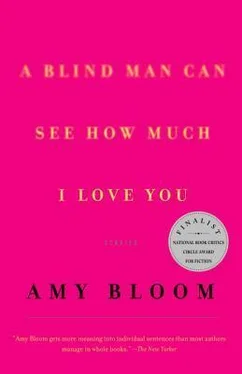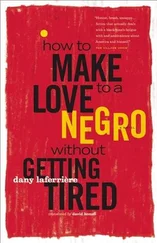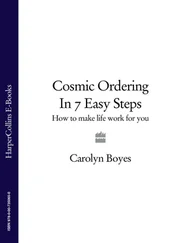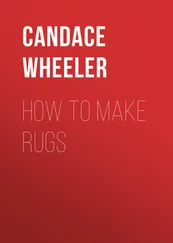I didn’t call my new neighbors the Golddust Twins. Margeann, our postmaster, called them that. She nicknamed all the New Yorkers and pre-read their magazines and kept the catalogues that most appealed to her. Tallblondgorgeous, she said. And gobs of money, she said. Such gobs of money, and he had a little sense but she had none, and they had a pretty little blond baby who would grow up to be hell on wheels if the mother didn’t stop giving her Coca-Cola at nine in the morning and everything else she asked for. And they surely needed a bookkeeper, Margeann said, because Dr. Mrs. Golddust was a psychiatrist and Mr. Golddust did something mysterious in the import and export of art. I could tell, just from that, that they did need me, the kind of bookkeeper and accountant and paid liar who could call black white and look you straight in the eye. I put my business card in their mailbox, which they (I assumed she) had covered in bits of fluorescent tile, making a rowdy little work of art, and they called me that night. She invited themselves over for coffee on Sunday morning.
“Oh my God, this house is gorgeous. Completely charming. And that stained glass. You are a genius, Mrs. Baker. Mrs. Baker? Not Ms.? May I call you Janet? This is unbelievable. Oh my God. And your garden. Unbelievable. Miranda, don’t touch the art. Let Mommy hold you up to the purple light. Like a fairy story.”
Sam smiled and put out his hand, which was my favorite kind of male hand, what I would call shapely peasant, reddish-brown hairs on the first joint of each finger and just a little ginger patch on the back. His hands must have been left over from early Irish farmers; the rest of him looked right out of a magazine.
“I know I’m carrying on, but I can’t help it. Sam darling, please take Miranda so Janet and I can just explore for two minutes.”
We stood in the centaurea, and she brushed her long fingers against their drooping blue fringe.
“Can I touch? I’m not much of a gardener. That card of yours was just a gift from God. Not just because of the bookkeeping, but because I wanted to meet you after I saw you in town. I don’t think you saw me. At the Dairy Mart.”
I had seen her, of course.
“Sam, Janet has forgiven me for being such a ditz. Let’s see if she’ll come help us out of our financial morass.”
Sam smiled, scooped Miranda up just before she smacked into the coffee table corner, and said that he would leave the two of us to it and that he didn’t use his old accountant anymore, so any help at all would be better than what he had currently. He pressed my hands together in his and put two files between them, hard red plastic with “MoBay Exports, Incorporated” embossed across the front, and a green paper folder with Dr. Sandra Saunders’ stationery sticking out of it. I sent them away with blueberry jam and a few begonia cuttings. Coming from New York, any simple thing you could do in a garden was wonderful to her.
Sandra said, “Could you possibly watch Miranda tomorrow? Around five? Just for a half hour? Sam has to go to the city. Miranda’s just fallen in love with you.”
After two tantrums, juice instead of Coke, stories instead of videos, and no to her organdy dress for playing in the sandbox, it was seven o’clock, then eight. I gave Miranda dinner and a bath, and I thought that she was, in fact, a very sweet child and that her mother, like mine, might mean well but seemed not to have what was called for. When Sandra came home, Miranda ran to her but looked out between her legs and blew me a kiss.
“Say ‘We love you, Janet,’” Sandra said.
“We love you, Jah-net.”
“Say ‘Please come tomorrow for drinks, Janet.’”
Miranda sighed. “Drinks, Jah-net,” she said indulgently.
Iplanted a small, square garden for Miranda near Sam’s studio, sweet william and campanula and Violet Queen asters and a little rosemary bonsai that she could put her tiny pink plastic babies around. Sandra was gone more than Sam was. He worked in the converted barn with computers and screens and two faxes and four phone lines, and every time I visited he brought me a cup of tea and admired our latest accomplishments.
He said, “It’s very good of you to do this.” “I don’t mind,” I said.
“We could always get a sitter,” he said, but he knew I knew that wasn’t true, because I had done their books.
Can I say that the husband was not any kind of importer? Can I say that he was what he really was, a modestly well-known cartoonist? That they lived right behind me, in a house I still find too big and too showy, even now that I am in it?
I haven’t even introduced the boyfriend, the one Sandra went off to canoodle with while I baby-sat. Should I describe him as tall and blond when in fact he was dark and muscular, like the husband? It will be too confusing for the reader if both men are dark and fit, with long ponytails, but they both were. And they drove the same kind of truck, which will make for more confusion.
I’ve given them wholesome, blandly modern names, while wishing for the days of Aunt Ada Starkadder and Martin Chuzzlewit and Pompeo Lagunima. Sam’s real name conveys more of his rather charming shy stiffness and rectitude, but I will keep “Sam,” which has the advantage of suggesting the unlikely, misleading blend of Jewish and New England, and we’ll call the boyfriend Joe, suggesting a general good-natured lunkishness. Sandra, as I’ve named her, was actually a therapist but not a psychiatrist, and I disliked her so much I can’t bear to make you think, even in this story, that she had the discipline and drive and intellectual persistence to become a physician. She had nothing but appetite and brass balls, and she was the worst mother I ever saw.
I wished her harm and acted on that wish, without regret. Even now I regard her destruction as a very good thing, and that undermines the necessary fictive texture of deep ambiguity, the roiling ambivalence that might give tension to the narrator’s affection. Sandra pinched Miranda for not falling asleep quickly enough, she gave her potato chips for breakfast and Slurpees for lunch, she cut her daughter’s hair with pinking shears and spent two hundred dollars she didn’t have on her own monthly Madison Avenue cuts. She left that child in more stores than I can remember, cut cocaine on her changing table, and blamed the poor little thing for every disappointment and heartache in her own life, until Miranda’s eyes welled up just at the sound of her mother calling her name. And if Sandra was not evil, she was worse than foolish, and sick, and more to the point, incurable. If Sandra was smooshed inside a wrecked car, splattered against the inside of a tunnel, I wouldn’t feel even so sad for her as I did for Princess Diana, for whom I felt very little indeed.
I think the opening works, and the story about the widows’ group is true, although I left out the phone call a week later, when the nicest widow, who looked like an oversize Stockard Channing, invited me to dinner with unmistakable overtones and I didn’t go. I wish I had gone; that dinner and its aftermath would make a better story than this one I’ve been fooling with.
Parts of the real story are too good, and I don’t want to leave out the time Sandra got into a fistfight with Joe’s previous girlfriend, who knocked Sandra right into her own potato salad at the Democrats’ annual picnic, or the time Joe broke into the former marital home after Sandra moved out, and threw everything of Sam’s into the fire, not realizing that he was also destroying Sandra’s collection of first editions. And when he was done, drunk and sweating, as I sat in Sam’s studio watching through the binoculars Sam had borrowed from my husband (Ethan was very much my late husband, a sculptor, not a glassmaker, but correct in the essentials of character; he wasn’t dead before I met them, he died a year later, and Sam was very kind and Sandra was her usual charming, useless self), I saw Joe trip on little Miranda’s Fisher-Price roller skate and slide down the ravine. I walked home, and when Sam called me the next day, laughing and angry, watching an ambulance finally come up his long gravel drive and the EMTs put splints all over Joe the Boyfriend, I laughed too and brought over corn chowder and my own rye bread for Sam and Miranda.
Читать дальше












